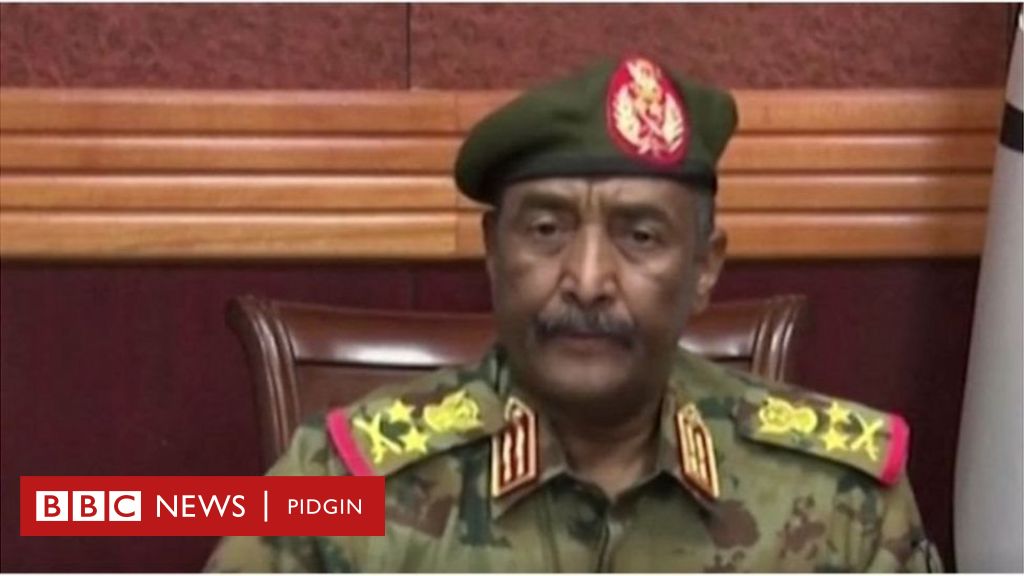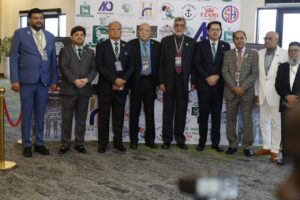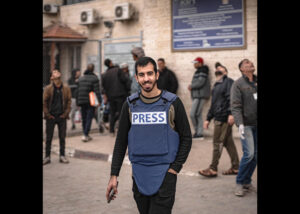
On October 25, the Sudanese military carried out a coup, announcing the dissolution of the power-sharing Sovereignty Council and the transitional government. It arrested Prime Minister Abdalla Hamdok and declared a state of emergency. In a statement, Sudan’s top general Abdel Fattah al-Burhan said the army had to step in because political rivalries “stirred up strife” and could lead to civil war. Al-Burhan’s move has earned near-unanimous international condemnation and stiff opposition at home, as huge protests continue to be organised.
Sudan’s escalating political crisis following the coup, now a threat to the very survival of the state, has its roots in the anomalous institutional architecture of the current political transition and the complicated relationship between its major protagonists.
The transition, which started after longtime President Omar al-Bashir was forced to step down by a popular uprising in 2019, is among the most prolonged and complicated among Sudan’s numerous past experiences and unique in the mutual hostility of its main partners.
The first (often neglected) transition the country went through was the 1953-55 self-government period, which started with an election while Sudan was still under British colonial rule. The constitution, the Self-Government Statute of 1953, was agreed in advance under colonial supervision.
It provided for an elected parliament, a cabinet, with the governor general as head of state. A referendum would decide on the deeply divisive issue of unity with Egypt versus full independence. That transition went smoothly, as parliament passed a unanimous resolution on independence without a referendum.
The Self-Government Statute was hurriedly modified to become the constitution of independent Sudan, with a five-man Sovereignty Council to replace the outgoing British governor general as ceremonial head of state. The Sovereignty Council formula was also adopted in the transitions following the October 1964 revolution, which brought down the government of Major-General Ibrahim Abboud, and the 1985 military coup against President Gaafar Nimeiry.
The transition to civilian rule in all these historical episodes happened rather fast. By contrast, in the present Sudanese transition it took almost nine months for a semblance of the civilian government to be established.
The events of the past two years rather echo a transition that is rarely included as such in Sudanese narratives: the period that followed the 2005 Comprehensive Peace Agreement (CPA) between al-Bashir’s government and the Sudan People’s Liberation Movement/Army (SPLM). This accord ended the war in the south and set a timetable for a referendum on South Sudan’s independence.
The CPA, which was supposed to put Sudan on a transition towards democratic governance, was a regionally managed affair, with significant international input. The agreement that became the backbone of the 2005 constitution, was generous on decentralisation and civil, human, and group rights. The six-year transitional period was overall very lively, if not always harmonious, with peace returning, freedoms of expression and political organisation largely respected.
The CPA was in effect an agreement between two heavily militarised authoritarian parties on sharing power and oil revenues between them. Each party was permitted to manage its own authoritarian enclave, including rigging elections at will. No wonder war broke out in both territories in the wake of separation.
Similar flaws plague the present transition agreement, brokered by the African Union, with Ethiopian help, in August 2019 between the Military Council (MC) and the Forces of Freedom and Change (FFC). Like the CPA, the deal was overshadowed by the direct conflict between the two sides and by the protracted and bloody trajectory of the December 2018 uprising.
The casualties were at least 246 deaths and more than 1,350 injuries by mid-July 2019, compared with a handful of casualties in 1985 and around a score in 1964. Significantly, more than 80 percent of the casualties occurred after the fall of al-Bashir’s regime on April 11, when the Military Council was in charge, with more than 120 deaths in the June 3 breakup of a sit-in in front of the army headquarters in Khartoum.
RSF’s leader, Mohamed Hamdan Dagalo (Hemeti), became deputy head of the Sovereignty Council, and the militia continued to expand phenomenally during the current transition, becoming also a formidable economic and political force. This posed a serious challenge to the state’s central function of the monopoly of legitimate violence. It is a riddle to conceive a democracy in the presence of a tribal militia that is a state within the state.
The pact became even more problematic given that both the military and the RSF stood accused of perpetrating the bloody events of June 3, which the transition government was committed to investigating and punishing. FFC’s acquiescence to this pact was not just out of necessity, but fear (not to say paranoia) about the threat from a third party – the sympathisers of the former regime.
Its priority became to uproot former regime loyalists and “Islamists” in general, as it feared their return to power. Influential components of largely urban-based FFC, including a few radical and liberal parties, were also keen to undertake some political and social restructuring before any full democratisation. This would involve legislation on issues related to religion and politics, as well as constitutional and electoral law provisions to ensure desirable outcomes.
The agreement also had no mechanism for restraining the expanding role of the military component of the Sovereignty Council, whose chair al-Burhan began acting as de facto head of state. His deputy, Hemeti, headed the civilian government’s Economic Committee, and also became chief peace negotiator with rebel factions. The generals even ventured into foreign policy making, including involvement in foreign wars and pacts, and, most controversially, agreeing to establish diplomatic relations with Israel, without the knowledge of the civilian cabinet.
This intransigence backfired, leading to the fracturing of the FFC’s own base due to a power struggle between the hardliners, with influential Communists quitting the alliance in November 2020.
The current crisis was provoked by another split within FFC, this time involving influential Darfurian factions. This coincided with Beja tribesmen blockading Port Sudan in protest against political deals that excluded them. The worsening economic crisis also complicated the woes of Prime Minister Hamdok, who, following widespread protests, undertook a timid cabinet reshuffle in July, but to no avail.
To sum up, the current crisis was provoked primarily by the deeply flawed architecture of the transition institutions, as well as the orientations of its main protagonists, all of whom were possessed by self-reinforcing insecurities. The radicals in the FFC prioritised intense political polarisation over consensus-building, a stance that led simultaneously to increasing reliance on the military and militias and fragmentation within the governing coalition.
The military was insecure because its partners intermittently threatened it with prosecution for past atrocities, and frequently asked it to crack down on their political opponents. Ironically, one of the disagreements that led to the current rift was a demand from the civilian government for the military to break up the protest of Beja tribesmen that blockaded the port.
Both sides were in no hurry for full democratisation given their fears, but the mistrust caused each side to support the other’s enemies, further enhancing insecurity and mistrust.
The intensification of conflict, rhetoric of vilification and recriminations in recent months poisoned the political atmosphere and undermined mutual trust. The current confrontation, especially if it leads to bloodshed, is likely to increase the polarisation and empower hardliners in all camps. This is the most serious threat to democratic progress.
As many theoreticians of democracy have argued, pathological mistrust is not conducive to a healthy democracy. The so-called “bounded uncertainty” – in which one cannot determine in advance who will be elected, but whoever is must be committed to policies within an acceptable range of options – is inherent in the democratic process. It involves self-restraint by those who are elected, no matter how big a majority they have and how big their commitment is to safeguard the basic rights and key interests of the others.
In Sudan, the current resurgent insecurities, lack of consensus and intensification of conflict, are key obstacles to building mutual trust. Such insecurities have also been behind the violent conflicts that have plagued Sudan for decades, and are still smouldering in many areas, with tribal and ethnic hostility rising, sometimes fuelled by political rivalries.
Some factions have felt threatened by the outgoing ruling coalition and feared that it would be more vengeful were it to return to power. The rising anti-military sentiments have also made the military even more paranoid and fearful of losing power, which would make it more dangerous.
The shaky military coup does not seem to have high chances of ultimate success, given the weak support at home and abroad. However, the situation is so perilous that both its success and failure could be disastrous. Given the proliferation of militias, the collapse of the army threatens a state collapse similar to the ones countries like Liberia have witnessed. This is going to be very costly for both Sudan and the international community.
The quickest way to address the crisis at its roots is by giving priority to forging the broadest cohesive civilian pro-democracy coalition, agreeing to expeditiously enhance the role of an independent judiciary, accelerating the preparation for elections and perhaps holding them early, and negotiating an exit policy for the military. The participation of the army in politics will not be necessary if the civilians are in accord on fundamental issues and if they also give the military leadership assurances about their fate in a democratic future.
Prime Minister Hamdok could play a key role in diffusing the tensions. Hitherto, he has managed to remain a consensus figure by being indecisive and seeking to please everyone. Now he needs to be more assertive, propose a national unity government with broad support among key constituencies, engage all parties in dialogue with international support, and take decisive steps to make the transition more democratic, more democracy-oriented, more law-governed, and less prone to arbitrariness and venomous rhetoric.
But what is absolutely essential is to reduce the polarisation and stop any more bloodshed, which is the last thing Sudan needs. Al Jazeera


